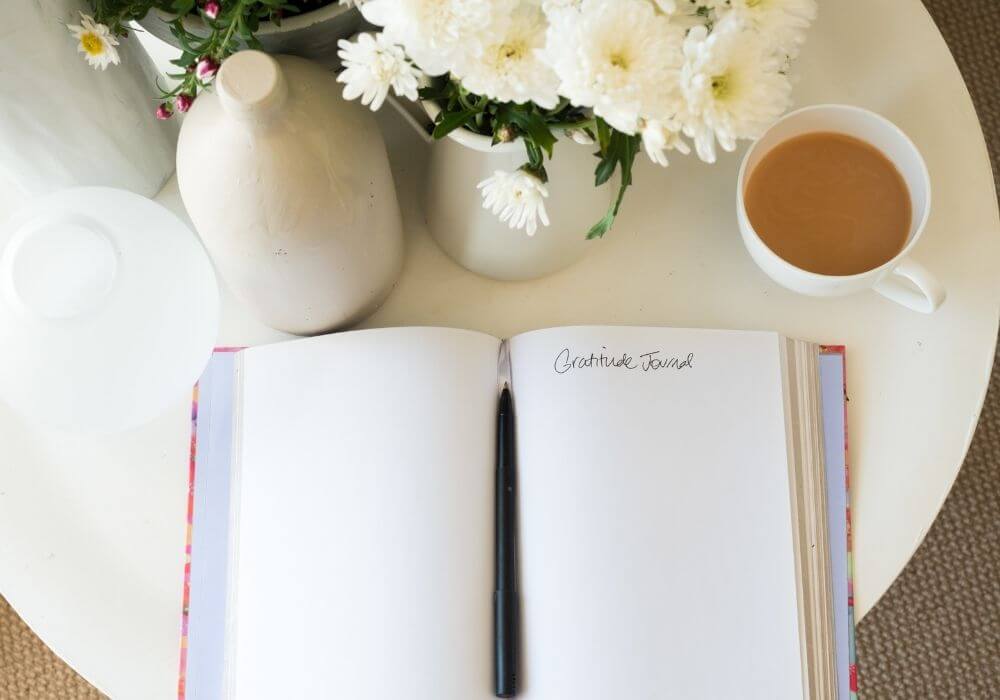These nine mindful mom ideas will increase your patience, love and kindness, making you a better mom.
Mindfulness for moms is an evidence-based method for being a more patient, kind and loving mom. When you are a busy mom, staying calm in the chaos can be challenging.
If you feel stressed out or overwhelmed, mindful parenting will help you be less reactive and more responsive. A mindfulness practice is a form of self-love and can relieve stress, anxiety and depression.
Acting mindfully will also improve your relationship with your child.
Why is Mindfulness Important?
Studies have shown that emotional regulation is a critical element of parenthood. As a mom, our ability to emotionally regulate is a significant predictor of our children’s emotional control and decision-making skills.
Mindfulness for moms will ensure you are role modelling positive parenting, resulting in more positive behaviour in children, including less anxiety, depression and acting out. Essentially, using positive parenting techniques helps build the parent-child relationship.

What is Mindfulness?
Mindfulness stems from Buddhist meditation principles and is the practice of purposely bringing your attention to the present moment. Within this present moment, you become intensely aware of everything you’re sensing and feeling without interpretation or judgement.
Mindfulness takes you out of the busyness of your head. Getting out of your head means less projecting, planning, stressing or looping negative self-talk. Acting mindfully will help you lead a calmer, more balanced life.
Benefits of Mindfulness
In the bestselling book, Mindfulness, Mark Williams and Danny Penman explain,
“Mindfulness promotes the kind of happiness and peace that gets into your bones. It seeps into everything you do and helps you meet the worst that life throws at you with new courage”.
Mindfulness shifts your thoughts from preoccupations so you can develop a greater appreciation of the present moment. Being in the moment will give you a greater perspective on life.
Wellbeing
Mindfulness for Moms is Good for Wellbeing. Becoming more mindful supports many benefits that contribute to a satisfying life. Focusing on the present means there is no need to dwell on the past or worry about the future.
Our thoughts and emotions often get in the way of our ability to fully engage in life and live in genuine peace and happiness. Mindfulness is quite liberating in that it allows us to let go and just be.
Improved Relationships
Many of the ways we respond to our children are habitual or conditioned. Using mindfulness to reduce stress will ensure you approach situations in a calmer, more compassionate way, creating better outcomes for everyone.
Improved Health
Aside from relieving stress and improving sleep, recent studies suggest that mindfulness has positive benefits on our hearts, brains, immune systems and may even reduce ageing. Mindfulness also alleviates depression, anxiety and OCD.

Set an Intention
One of the keys to experiencing more meaning and happiness in your life is to set an intention. Setting an intention is easy and only takes a moment. Instead of starting on autopilot, living intentionally gives you a goal to strive for during the day.
An example of an intention to be more mindful is:
“I will wait before I react today. I will breathe deeply, and I will notice my thoughts without judgement.”
Mindfulness for Moms Parenting Model
The mindfulness for moms parenting model involves a five-step technique. The steps include: listening with full attention, non-judgmental acceptance of self and children, emotional awareness of self and child, self-regulation in the parenting relationship and compassion for self and child.
This mindfulness parenting model is expanded upon below.

Listening with full attention
Listening with your full attention means stopping what you are doing and giving your child your undivided attention. Put your phone out of view and look your child in the eye as you let go of all judgement.
Listen with an open heart, unconditional acceptance and compassion. When listening to your child’s ideas, think neutral thoughts, even if you disagree. Paraphrase and repeat information back to clarify that you have heard and understood correctly.
Listen to understand and try to see the situation from your child’s perspective. Don’t give advice, correct or judge when you are actively listening.
Related: If you are a working mom and need help managing your house, you can also read our cleaning schedule for working moms for all the best hints, tips, hacks and ideas. Our schedule will ensure you have more time to focus on what’s important, enjoying your family.
Non-judgemental acceptance of self and children
Your child is as unique as you are. Act with compassion and empathy as you recognise your child’s individuality. Notice if your experience influences your bias or judgement.
Try to act in the moment with the information present at the time. Accept the situation for what it is and let go of all expectations of your child.
Emotional Awareness of Self and Child
Listening and being more present in the moment is a fantastic way to become attuned to your child and deepen your relationship. Try to focus on your child’s non-verbal cues to determine how they are feeling.
Nonverbal cues include noticing your child’s tone of voice, body language, breathing and facial expressions. You can help your child increase their emotional intelligence by letting them express and discuss their emotions.
Helping children to understand their feelings by labelling them can help them identify and process them. For example, if they feel upset, help them by saying, “that must have made you feel very sad”.

As you develop an awareness of yourself and your child, notice how the changes in your mood affect your child’s mood.
Self-regulation in the Parenting Relationship
Pausing before responding allows you to respond consciously rather than unconsciously. Considering how you feel versus how you will respond will enable you to think through the options.
You may still feel angry. However, you don’t have to respond in anger. By pausing and considering how you are feeling, you can also think about how your child is feeling and what everyone might need at that moment.
The way we respond and express emotion influences the way our children handle emotions. Being a strong role model is one of the qualities of a good mother and can significantly impact your child’s life.
As children learn through observation and imitation, they will learn how you handle stress and express anger. When you are tolerant and supportive of emotional expression, your children will recognise it is safe to express themselves emotionally.
Having the safety to convey emotion helps children develop emotional intelligence.
Compassion for Self and Child
Things don’t always go as planned. As a mom, it’s hard not to judge yourself or your child harshly some days. Acknowledge that there will always be challenges in your motherhood journey and accept these with self-compassion.
Having a bad day, needing to ask for help or not handling a situation well is expected. Just as you pause and think about how you respond to your child, do the same for yourself.
Becoming aware of your inner critic allows you to treat yourself with understanding, empathy and compassion. Role modelling kindness to yourself teaches your child that it’s okay to make mistakes or have a bad day.
Forgive yourself and try again tomorrow. By being kind to yourself, you will reduce your stress levels and bring more joy to parenting.
What you do and say is critical; let your child catch you in the act of showing self-compassion. If you have had a bad day, allow them to see you shrug it off and apologise. “Mummy is having a bad day, sorry”.
Just as you have bad days, children have bad days too. Children can often feel tired and overwhelmed. Acting with compassion will ensure children grow up knowing what is normal and feeling happier and more self-confident.

Mindfulness for Moms Technique
STOP is a quick mindfulness technique you can try when you feel you are about to react.
Stop
Wait before you react to your child. Take a deep breath.
Breathe
Take a few deep breathes in through the nose and out through the mouth. Feel your body relax.
Observe
Notice your thoughts and feelings without judgement. You might feel angry and annoyed. That’s okay. Notice with curiosity your feelings and emotions without acting on them. Take in your surroundings, including the sights, sounds and smells.
Proceed
Once you have gained a moment of calm and perspective, move forward with awareness.
Other Mindfulness for Moms Techniques
There are many different ways to incorporate an individual mindfulness practise into your routine. The goal of mindfulness is to reach a state of alert, focussed relaxation.
You can train your brain to be more mindful by deliberately paying attention to thoughts and sensations without judgment. If you notice your thoughts have drifted and you are no longer in the present moment, bring your attention back.
You can build your awareness of the present by finding joy in simple pleasures. Use your senses, touch, sound, sight, smell and taste to heighten your awareness of each moment. In this way, mindfulness will help you to connect with the world around you.
Breathing
Focussing on your breathing takes you out of your mind and into your body. Periodically throughout the day, take a moment to notice the sensation of your breath.
Take a few deep breaths. Observe each breath and be aware of what is happening in your body as you breathe in and out. Notice the pause at the end of each inhale. Focus on the rise and fall of your chest or the sensation through your nostrils.
If you find your mind wandering, notice this without judgement and gently bring your attention back to the breath.
Try to notice your breath for 5 minutes every day.

Use an App
There are many apps available to assist you in becoming more mindful. Most mindfulness techniques are a form of meditation.
You can try a quick five-minute meditation from Headspace here. Headspace promises to help you get happy, stress less and sleep soundly. Headspace offers mindfulness skills from world-class experts like a former monk, Andy Puddicombe.
There are sessions as short as 3 minutes to fit into your busy schedule.
You can also visit our article for more of the best apps for moms here.
Slow Down
If you are racing from one activity to the next, it’s almost impossible to enjoy what you are doing. Avoid multitasking and work at a steady pace. Taking time to give the task at hand your full attention will increase both mindfulness and pleasure.
As you become more mindful, you may even enjoy mundane tasks such as folding the clothes or washing the dishes. When you slow down, make a conscious effort to notice small things such as the soap on your hands, the warmth of sunshine on your skin, the smell of fresh laundry or the simple pleasure of a cup of tea.
Note: We have some great ideas on reconnecting to your loving self, mind, body and soul in our article on self-love for moms.
For finding the time to slow down, visit our article on time-saving tips for moms.

Activity
Choose an activity every day that you can practice mindfully. You can choose your walk, a cup of tea, a household chore or eating. Whatever activity you choose, pay attention and use all senses.
For example, if it’s your shower, really focus on the feeling of the water on your skin, think about the temperature, notice the pressure, appreciate the smells and texture of the soap, tune into the sound the water makes and the sight of the soap as it lathers.
This exercise will give you an idea about how you can tune into an activity mindfully.
Journaling
Journaling is an evidence-based mindfulness practice that will help you slow down and reflect. Putting your thoughts onto paper without filtering or judging is a great way to observe your thoughts and become familiar with them.
Journaling is an activity done in the present and allows you to clarify your thoughts and ideas. This 6 minutes diary is a simple and effective way to increase mindfulness, happiness and productivity.
The 6 minutes diary uses the latest positive psychology and neuroscience research to extract the smallest things that make the most significant difference. The 6 minutes diary requires just 3 minutes in the morning and 3 minutes in the evening.
Meditate
If you are like me and always planning to start a meditation and mindfulness practice, here is your chance. Mindfulness is like fitness for your brain to keep it healthy, relaxed and stress-free.
This simple ten-minute exercise will reduce stress, promote happiness, increase calm and improve clarity. Take a deep breath, relax and enjoy.
As you become more mindful, you might like to read our article self-help books for moms. We have reviewed three mindfulness books and books on other subjects: compassion, self-love, happiness, and inspiration.
These books will open your mind to new ways of thinking, living and being, allowing you to increase your joy and abundance and achieve your goals faster.
Reminder
The key to mindfulness is not to clear your mind; it’s to focus deliberately. It’s about trying to bring awareness to daily activities that you would usually do on autopilot. Being aware several times a day is more beneficial than a big session all in one go.
Set a prompt to remind you to be more mindful. You can set an alarm, a reminder in your calendar or stick a post-it on the mirror.
Try to tap into the wonder, awe and beauty of the world around you.
Related: For ideas on what to buy the new mom, visit our 85 new mom care package and gift ideas here.
Mindfulness for Children
Studies have shown that mindfulness can positively impact children’s mental health, wellbeing, mood, self‐esteem, self‐regulation, positive behaviour, and academic learning. You can guide your children to be more mindful by asking them questions and asking them to focus on their senses.
Give children a piece of orange peel or a beautiful smelling flower and ask them to focus on the scent for a few minutes.
I also love this guided meditation for Children, which has 4 million YouTube views.
Mindfulness does not have to be complicated and can be as simple as setting an ongoing intention to pause and be present so you can enjoy life more. Simple things like paying more attention as you brush your teeth, take a shower or eat can increase the pleasure you derive from these activities.
The more you practice mindfulness, the easier it will be for your brain to enter a mindfulness state.
Even one minute of consciously connecting with one of your senses is a mindfulness exercise. In short, by simply taking a few mindfulness for moms minutes every so often throughout the day, you will dramatically increase happiness while improving your ability to cope with stress.
Why not visit our article with 45 ideas to ensure you thrive as a mom here, this article was written for a stay at home mom but there are many takeaways for all moms. These essential ideas will ensure you cultivate good habits that lead to a more fulfilling life. Topics include appreciation, curiosity, acceptance, kindness, forgiveness, learning and generosity.
I am confident these nine mindful mom ideas will increase your patience, love and kindness, making you a better mom.





